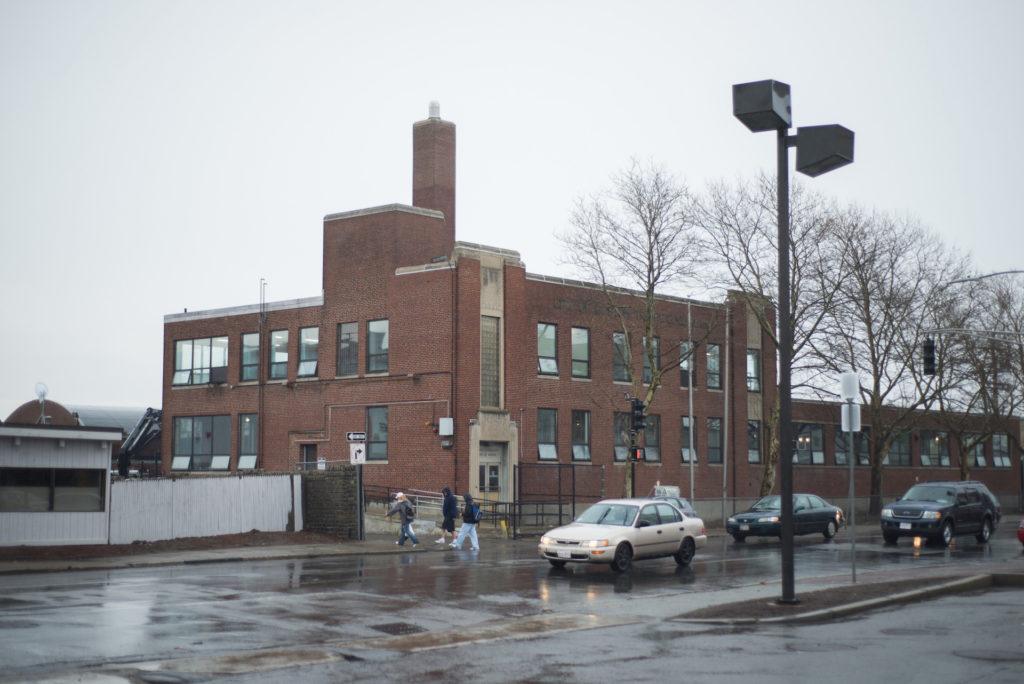By Sean Connolly, news correspondent
When the Long Island Bridge was abruptly closed last October, over 700 people were displaced from homeless shelters and drug rehabilitation programs on the verge of Boston’s coldest winter on record.
Around 250 homeless men have been placed at the South End Fitness Center, which the city took over to provide temporary housing. Conditions there have been criticized, however: its clients have been sleeping on gym mats and metal cots in tight spaces.
“I’ve talked to people staying in the South End Fitness Center, and the conditions are poor,” Cleve Rea, a member of the Boston Homeless Solidarity Committee who is currently experiencing homelessness, said. “There’s not much room, and the people staying there are cramped.”
Women are living in similar conditions at the Barbara McInnis House, the city’s old morgue, without bathing or cooking facilities. Others have been entering into any shelters with availability throughout Boston. For many, permanent shelter has not been easy to find.
Mayor Martin J. Walsh promised in October that by April of this year, a new shelter on Southampton Street would be completed to house 500 men displaced from Long Island. In January, 100 men began staying at the shelter. Now, over a week into April, construction is still far from complete. City officials said the shelter won’t be complete until this summer at the earliest, leaving promised shelter for 400 men unaccounted for.
“While this project is taking longer than we had hoped, we’re doing that in order to make sure we have a full program,” Beth Grand, director of homeless services for the Boston Public Health Commission, told The Boston Globe on March 27.
Others see this delay as a blight on the city’s dedication to its citizens. Questions have been raised as to how motivated city officials truly are to complete the shelter.
“I know a woman who was working in a shelter on Long Island and lost her job when the bridge was condemned,” Ryan Conlin, a Northeastern graduate and local community activist, said. “According to a report released December 11, 2014 by the US Conference of Mayors, a quarter of people who are homeless in Boston have jobs. This all goes to show that whether it’s homeless or working people, the government’s priorities put people’s needs last.”
Rae echoed Conlin’s sentiment that the city has failed to adequately address the growing issue.
“When you set a target for April and then move it to summer, it’s as if the priority has lessened because the issue isn’t on the news,” Rae said. “When the bridge originally closed, there was more pressure on the government to do something, but now that less people are paying attention, the city can delay the construction of the shelter. To me, the city has kind of lost credibility.”
The city has also been slow in replacing over 250 beds for recovering addicts that had been available on Long Island. This includes what had been about half of the city’s detox beds. Last week, 75 transitional recovery beds were opened in a city-owned building in Mattapan, but programs for around 180 addicts remain closed.
“Sometimes you end up with situations where recovering addicts are staying with current users, which makes it very difficult for those trying to recover,” Rea said, referring to those in recovery that are forced to stay in homeless shelters not designed to suit their needs.
Northeastern economics graduate student Arthur Pan questioned why more emphasis wasn’t being placed on addiction recovery programs.
“Programs for recovering drug addicts seem very important to keep running,” Pan said. “I wonder why the city has not prioritized replacing these programs specifically.”
On Wednesday, the Boston Homeless Committee held a protest at Boston City Hall to mark the sixth-month anniversary of the closure of the Long Island Bridge.
“Sixth months after the catastrophic displacement of 700 homeless and people in recovery, little has been done to provide basic services or dignity for the victims of the City’s actions,” read a press release issued on the organization’s Facebook page on April 8.
It is unclear when exactly this shelter will be completed, or when the remaining programs for recovering addicts will be replaced. However, even when these issues are addressed, there will still be challenges for the homeless population. Activists question if the addition of 400 beds at the Southampton Shelter will be enough to impact the current housing situation for Boston’s homeless citizens.
“The homeless population continues to grow, but all the city’s trying to do is replace the beds they lost when they closed Long Island,” Rae said.
Photo by Scotty Schenck














